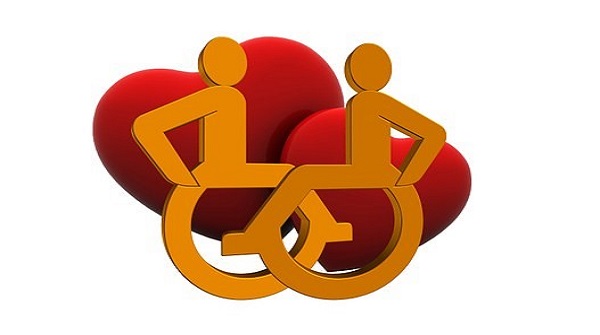Everyone has a right to safe, healthy and happy relationships
- Kevin Campbell, Senior Health Improvement Officer
- 22 October 2019
- Gender based violence
People with learning disabilities have a right to develop personal and sexual relationships like everyone else. With the right support and access to education, the majority of people with learning disabilities are able to engage in safe, healthy and happy personal and sexual relationships. What we must recognise though, is that people with learning disabilities are at a greater risk of experiencing gender-based violence (GBV).
Disabled women and girls are at greater risk of violence than non-disabled women and girls. Women with a learning disability are more likely to experience sexual abuse than other disabled people. They may find it more difficult to report abuse and be believed.

That’s why I’m working with colleagues in our national Gender-based Violence and Learning Disability Advisory Group, to improve the service response to women with learning disabilities who experience abuse. The Advisory Group includes representation from the Scottish Commission for Learning Disability, Enable Scotland, Talking Mats, Wise Women, NHS Boards and local authorities.
In March 2019, we held a conference to explore issues around sexual and reproductive rights and relationships, and to consider good practice for supporting women and responding to GBV. The day highlighted the importance of relationships to people with learning disabilities as well as the challenges staff face in providing an appropriate response to GBV. Responses tended to be shaped by what sector you worked in and whether concerns were viewed through a GBV or learning disability lens.

When I talk to services across health and social care and the third sector, it is clear that there is need for multi-agency guidance and training to support frontline staff. This was also brought up by those attending the conference and these are areas that our Advisory Group has focused on.
We have now drafted guidance for practitioners and would like hear your views on how it could be improved. It aims to provide a framework for frontline staff who work with people with mild or moderate learning disabilities, or significant learning needs, and/or work with people who have experienced gender-based violence. You might work in social work, community learning disability teams, women’s support organisations, learning disability support services or other frontline roles within health and social care.

Our consultation gives you the opportunity to share your views on the guidance’s purpose, intended audience, content and usefulness. The consultation period ends on Friday 29 November 2019.
Once the consultation has closed, all responses will be considered and used to finalise the guidance for publication. Publication is expected to be early 2020.
We all want people to live happier, healthier and safer lives and we hope with your input, this guidance can help you and your services to support people with learning disabilities to do so.
You can also submit your consultation responses using Microsoft Word and email to kevin.campbell1@nhs.net
To subscribe to our blog, please email us.
